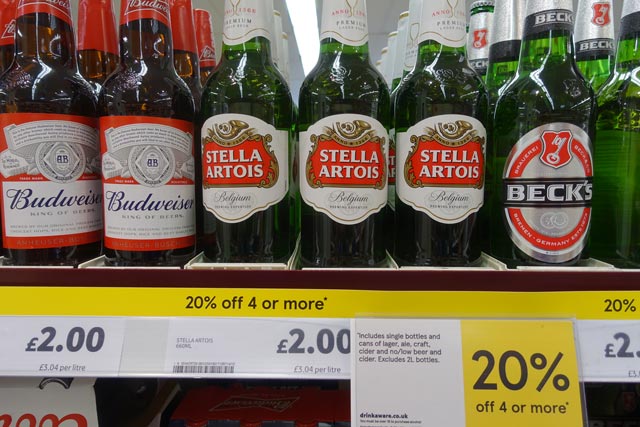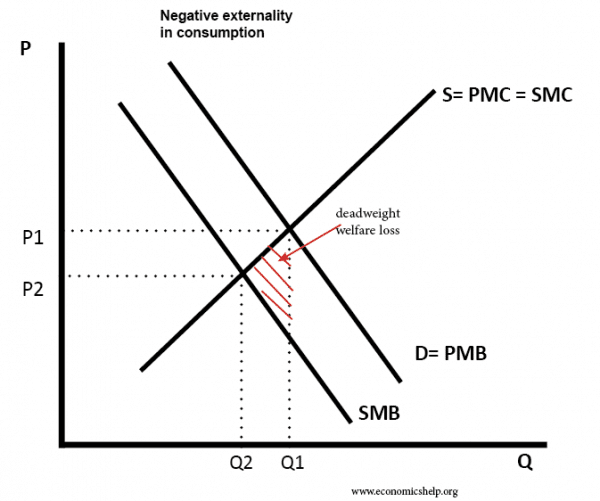A demerit good is defined as a good which can have a negative impact on the consumer – but these damaging effects may be unknown or ignored by the consumer. Demerit goods also usually have negative externalities – where consumption causes a harmful effect on a third party.
Examples of demerit goods
- Alcohol
- Cigarettes
- Drugs
- Junk food
- Gambling
The classification of demerit goods is a normative judgement. In defining demerit goods, we may assume that people are irrational and make poor choices – often consuming goods which are harmful, degrading or damaging in the long-term. This may be due to poor information or poor decision making. In other words, people may underestimate the private costs and over-estimate the private benefits.
Demerit goods have these two characteristics:
- Harmful, unhealthy to the individual consumer.
- Also, they usually have negative externalities. (Costs imposed on third parties)
Why alcohol is considered a demerit good
- Consuming alcohol can cause personal health problems, e.g. long-term liver problems or hangover the next morning. But, individuals may ignore these costs or think they don’t apply to them.
- Consuming alcohol can also cause costs to other people (external costs), such as increased levels of crime and the cost of treating disease.
Good with negative externality in consumption
With a good like alcohol, you could say it only becomes a demerit good when consumed in excess. e.g. one unit a day is unlikely to cause either much personal damage or negative externality. But, when consumed in excess, the personal and external costs can be very high.
The distinction between demerit goods and negative externalities
A good with negative externalities (e.g. driving a car) isn’t necessarily a demerit good. Driving a car causes pollution (negative costs to other people). But, we don’t usually assume that driving a car is bad for you. Therefore it would not be classed as a demerit good, just a negative externality.
Uncertain classification of demerit goods
For some goods, it is not clear whether it is a demerit good or not.
For example to some people, contraception would be considered a demerit good (contraception a sin according to the Catholic church).
However, to others, contraception may be considered beneficial (contraception helps prevent the spread of STD) and therefore a merit good.
Dealing with demerit goods
To reduce demand for demerit goods, the government may:
- Place a tax on the good, e.g. tobacco tax
- Place regulations on the consumption, e.g. legal minimum age of 18.
Prohibition of alcohol
In the early Twentieth Century, the US introduced prohibition – banning the sale of alcohol. The logic for banning alcohol was that it was a demerit good. The economist, Irving Fisher, supported prohibition because consumers often made a mistake in fulfilling desires rather than maximising satisfaction.
“Today I would like to see a study, partly economic and partly psychological, showing how the human animal following his desires often misses satisfactions instead of attaining them. The star example is narcotics.”
(Quoted in I. N. Fisher 1956, 339)
Related


